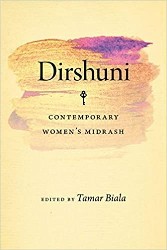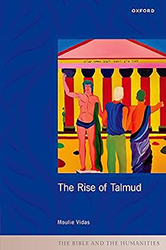In her new book, Mira Balberg examines the influence and significance of memory failures in the literature of the Tannaim, the rabbis whose views are recorded in the Mishnah.
Remembering and forgetting are deeply embedded within Judaism. Sometimes remembering to forget, sometimes forgetting to remember. How do we preserve memory? Must we always remember? Are there things and times we should forget? Are there blessings and curses in each?
Even the major holidays are rife with this tension. We remember at Pesach, and we forget at Purim. Our prayers echo this tension, too. The Sh’ma is precise about how to remember and be reminded; Psalm 27 wrings out the consequences of forgetting; and the rabbinic commentaries on the mitzvot seek to establish practice as a guard against forgetting. Yet human fallibility is always lurking. We may have more sophisticated psychological terms, but the rabbis knew slippage and backsliding when they saw them.
Within these contexts, Balberg shows how what is described as an intense preoccupation with the possibility of forgetfulness, both intentional and not, becomes central to shaping Judaism as a practice. She structures her analysis around six interconnected, but not linear, concepts that consider aspects of forgetfulness, or “memory omissions,” as she terms them.
She first considers memory and doubt, particularly “episodic memory,” by which she means forgetting incidents that the person actually experienced. She focuses on the placing of the fragments of the second set of tablets from Sinai in the Ark alongside the complete set. She draws from this the warning that even unintentional forgetfulness can diminish one’s full understanding of halacha.
The second chapter investigates the concept of remembering forgetfulness. Balberg argues that what may seem oxymoronic at first blush is an essential part of the role of community leaders, not just interpreters of Torah. They understand the very human tendency to forget.
Balberg’s third chapter is called “Partial Eclipse of the Mind.” She looks at the way in which, from time to time, certain aspects of halachic memory can fade from consciousness, be concealed for a time, and then reappear and cast a text in an entirely new light. In effect, this is somewhat counterfactual, a “what if” question, and its value is to give extra depth to the rabbinic understanding.
Chapter four, “Rituals of Recollection,” examines the solutions that the rabbis developed to deal with situations in which forgetfulness had already occurred. What should happen to those who forget? Is there a need for reeducation, for learning the lessons again and again? Should they be punished, taught a lesson they will never forget?
The fifth chapter, “When Teachings Fly Away,” is more concerned with Torah than halacha. Balberg argues that because the memorization of Torah is regarded by some as a duty, any failure can be seen as a shortcoming in terms of devotion, commitment, or observance.
In the final chapter, “Good Tidings, Bad Tidings,” Balberg considers what may seem to many the most relevant, and perhaps most personal, part of her book: how many times the people of Israel have forgotten Torah, and how they are likely to do so again. Whether this particular forgetting is cyclical or just a one-off, it is, perhaps, one of the enduring tensions of the Jewish people.
Balberg’s book is clearly written and largely avoids burying the reader in lengthy footnotes and recursive arguments. While it may sometimes seem a little rarified for the less committed reader, it is important material for rabbinical students and will appeal to those wishing to study the debates, arguments, and practices of the Tannaim at a deeper level. It appears to be aimed at an academic audience, not so much the general reader, and in that regard, it hits its mark — providing we remember what it says.





